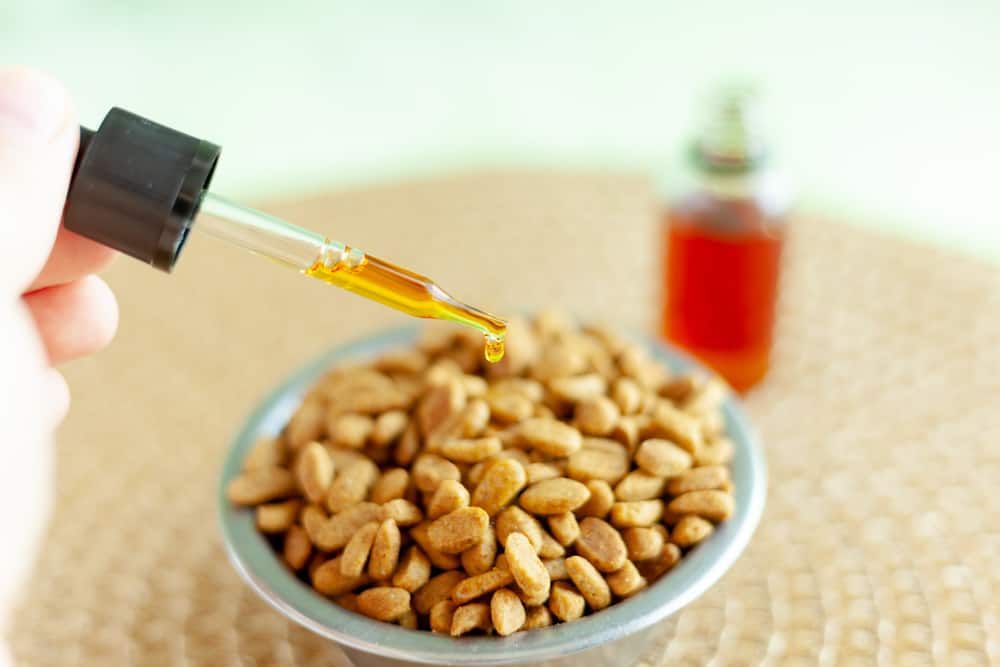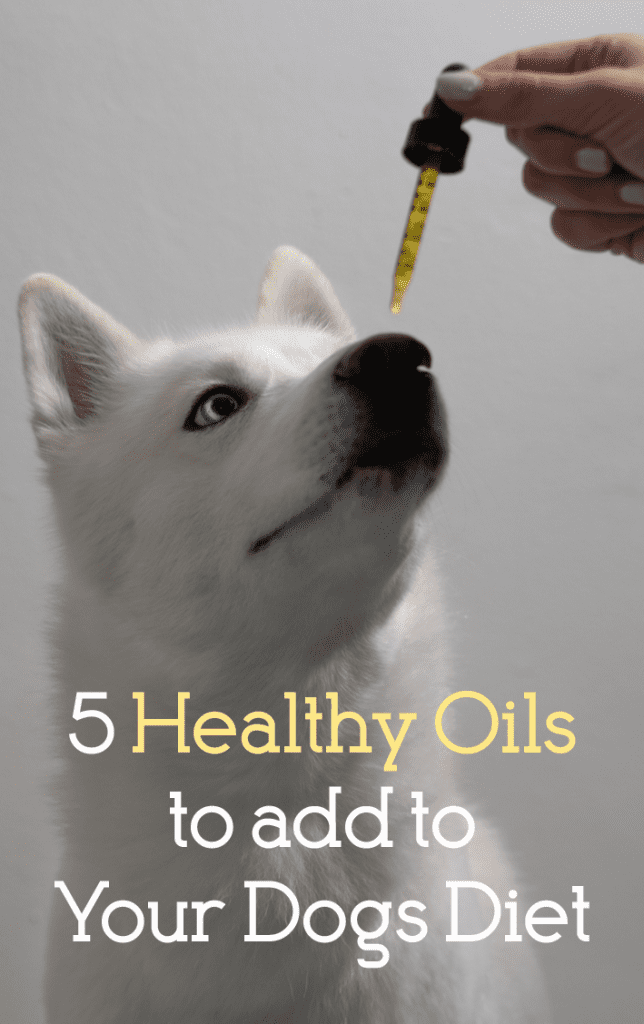5 Healthy Oils To Add To Your Dog’s Diet

As responsible and loving pet owners, we want the best for our furry friends, and that starts with excellent nutrition for their wellbeing.
Just like us, dogs need to eat a diet that provides all of the necessary nutrition for optimal health. While standard dog foods do contain a range of essential nutrients, and premium pet foods may provide even more, it is still a great idea to supplement your pooch’s diet with some healthy, beneficial oils.

There are a variety of health benefits to supplementing your dog’s diet with certain oils. Certain breeds can also benefit specifically due to their genetic predispositions. For example, Corgis are prone to developing hip dysplasia, so supporting their joint health and mobility with healthy oils can improve their wellbeing.
Here are five healthy oils to add to your dog’s diet.
Fish Oil
Most of us are familiar with the health benefits of omega-3 fatty acids for human wellbeing, but they can be just as beneficial to dogs, too.
Fish oils contain DHA and EPA, which are omega-3 fatty acids that help with arthritis and have some anti-cancer properties.
Omega-3 fatty acids from fish oil also have natural anti-inflammatory effects, reducing overall inflammation in the body and assisting with pain management. Fish oil can even help to improve your dog’s memory, so it’s particularly supportive for older dogs.
Coconut Oil
Humans now widely use extra-virgin coconut oil as a healthier alternative to more highly processed oils full of saturated fats. But, again, just like us, the same health benefits apply to our pups.
Extra-virgin coconut oil can assist dogs in losing weight, making them more energetic and even relieving dry skin issues. As an additional bonus, coconut oil can also help to improve your dog’s breath.


Krill oil
Typically, fish oil is derived from fish that sit higher up on the food chain, such as salmon. Krill oil, however, comes from smaller, crustacean-type organisms that are lower on the chain and consequently contain less mercury.
Krill oil still contains plenty of DHA and EPA to support healthier joints and skin in dogs, as well as a range of other benefits.
Flaxseed Oil
When it comes to giving your pup’s heart health a boost, it doesn’t get much better than flaxseed oil. Similar to wild fish, flaxseed oil is packed with alpha-linolenic omega-3s. Like many of these healthy oils, flaxseed oils can also support healthier joints, assist with mobility in arthritic dogs, and can also help to regulate blood pressure and promote healthy kidney function.
Olive oil
Olive oil is high in calories, so it can be beneficial when supplementing active dogs or those struggling to gain or retain weight.
Although not high in omega-3 fatty acids, Olive oil is rich in antioxidants and vitamin E. It helps to support the immune system and can reduce the symptoms of diabetes and cardiovascular disease.
Are there any risks to feeding these oils to my dog?
Too much oil in your dog’s diet can lead to weight gain, as well as an increased risk of pancreatitis, particularly if they are already overweight, so moderation is key.
Consuming too much oil can also lead to a deficiency in vitamin E, so it’s a good idea to make sure that their diet is rich in this vitamin.
Fish oils can potentially affect how long it takes a dog’s blood to clot, so if your pup is facing an operation, it’s best to give oil supplementation a rest for a week or more before the surgery.


How do I feed these oils to my dog?
Oils like these typically come in either a capsule or free-form in a bottle. However, depending on the environment and climate, a jar or bottle of oil can become rancid quite quickly, so capsules are the safest option.
That said, buying them in capsule form doesn’t necessarily mean that you have to feed your dog capsules. You can try to pop a capsule in their moist food, but it may be easier to pierce or open the capsule and mix the oil into their meal.
Final thoughts
The oils mentioned above can provide a variety of health benefits to your dog, so long as they are of high quality and are given in moderation. Consult with your vet for further guidance as to your dog’s individual needs, and follow the advice supplied with your dog supplement products.
Emma is a professional writer and blogger, with two furry friends and a lot of pet behavioral and pet health knowledge to share. She has written for numerous big animal magazines and health sites, and is a regular contributor to The Catington Post.
Enjoyed this article? Pin it!


This post contains affiliate links. If you make a purchase after clicking them, we may get a small commission. The Dogington Post is dedicated to finding the best products for dogs and we will never recommend a product that we don’t love.



